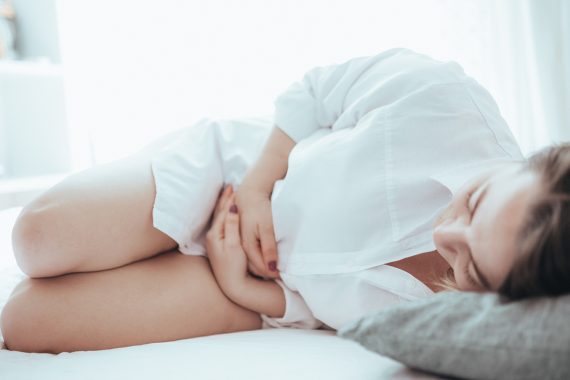New endometriosis training programme ‘boosted GP knowledge’

A new training programme in Wales is helping GPs to recognise the symptoms of endometriosis earlier, the Welsh Government says.
The Endometriosis in Primary Care programme has led to a 43% improvement in knowledge of the condition among the GPs who have taken part so far.
It is one of a range of training programmes being offered through Health Education and Improvement Wales as part of the country’s Women’s Health Plan with others on urinary incontinence, PMS and suspected gynaecological cancer.
GPs taking part were updated on the most recent NICE and European Society of Human Reproduction and Embryology guidelines with their knowledge tested before and after.
NICE updated its guidelines on endometriosis late last year to provide clarity on the pathway of care for women suspected to have the condition.
This year it has approved two medicines – relugolix combination therapy and Lingolix as an at-home treatment option for patients where previous medical and surgical intervention has been unsuccessful.
Endometriosis is one of eight priority areas for improving healthcare under the Women’s Health Plan launched six months ago.
It also set out plans for a women’s health hub in every health board area with pathfinder sites in place by March 2026 and the setting up of Wales’ first women’s health research centre.
The training was shown to have boosted GP confidence in discussing symptoms and treatment options with women, the Welsh Government said.
Sarah Murphy, minister for mental health and wellbeing, said: ‘This training ensures women’s voices are central to their healthcare experience, and it helps GPs support their patients more effectively.
‘Endometriosis can have a huge impact on a woman’s quality of life, their work and their relationships.
‘I am determined our Women’s Health Plan will drive real improvements in women’s health outcomes and reduce inequalities.’
Dr Mirka Slavska, an obstetrics and gynaecology consultant at Aneurin Bevan University Health Board, who delivered the training, said: ‘The session covered differential diagnoses, referral pathways, novel diagnostic and treatment options, and introduced the Endometriosis Cymru symptom reporting tool.
‘The excellent feedback we received reflects the value of equipping healthcare professionals with current, practical knowledge to improve care for those living with endometriosis.’
Dr Helen Munro, clinical lead for Women’s Health in Wales, said the hubs would be central to meeting women’s healthcare needs across their life course.
‘This is where healthcare professionals will join up with existing services to provide women’s health services within our communities.
‘The needs of our local populations, together with existing resources and infrastructure will guide the design and delivery of the hubs.’
In March, NHS England announced it was actively assessing workforce training gaps and future needs in response to calls for GPs to have more training in women’s reproductive health conditions.
It followed a report from the House of Commons Women and Equalities Committee which found that patients with these conditions experience ‘medical misogyny’ under the care of GPs and other health professionals.
Pulse is hosting a free virtual event on women’s health on Tuesday 17 June.
Portfolio careers
What is the right portfolio career for you?

Visit Pulse Reference for details on 140 symptoms, including easily searchable symptoms and categories, offering you a free platform to check symptoms and receive potential diagnoses during consultations.















